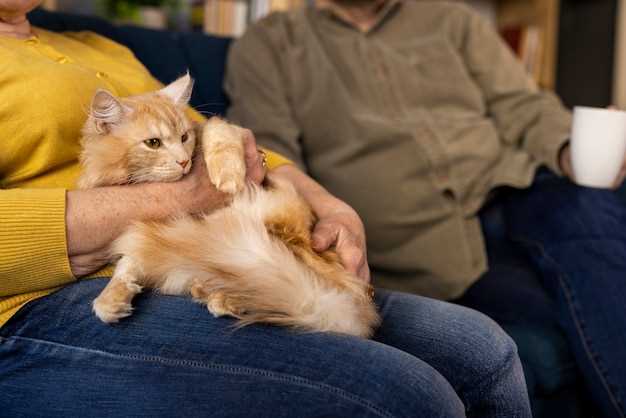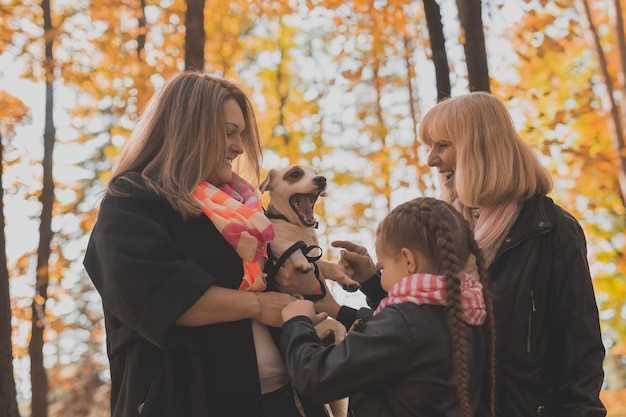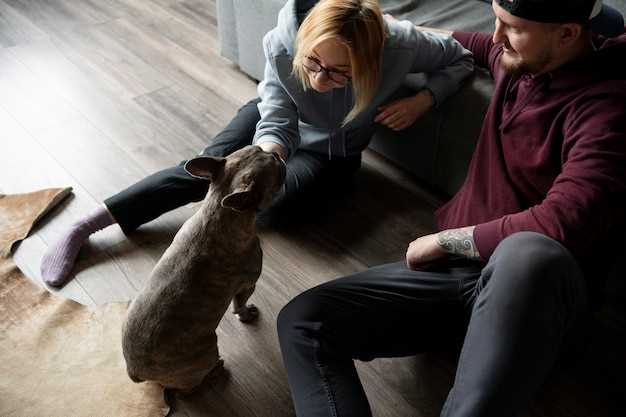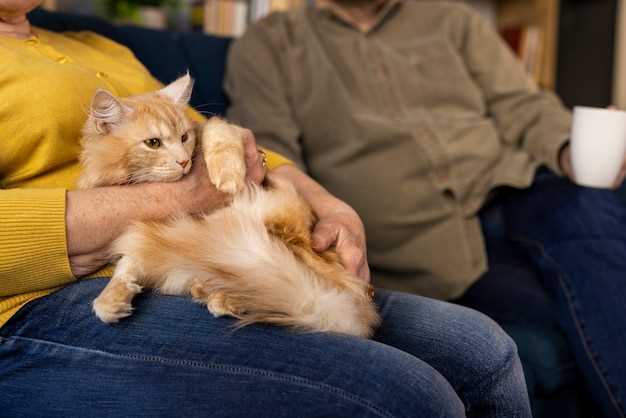Pet Loss Support Groups – Finding Comfort in Shared Experiences
If you’re grappling with the grief of losing a beloved pet, connecting with others who share similar experiences can be a transformative step towards healing. Pet loss support groups offer a nurturing environment where individuals can express their feelings openly and find solace in shared understanding. Engaging with these communities provides not only empathy but also practical coping strategies that can aid in navigating this difficult time.
Many pet owners discover that discussing their emotions in a safe space helps to validate their grief. Not only do support groups facilitate shared stories, but they also encourage participants to reminisce about their pets in a joyful light. This exploration often leads to cherished memories, allowing individuals to celebrate their pets’ lives rather than solely mourning their absence.
Finding a local group or an online community that resonates with you can greatly enhance your healing process. Many organizations, such as the Association for Pet Loss and Bereavement, offer directories to locate support groups near you. Additionally, online platforms provide flexibility for those unable to attend in-person meetings. Remember, connecting with others can be an invaluable resource; you don’t have to navigate this grief alone.
In these groups, you’ll hear varied perspectives on grief and how others coped with loss. Learning from the experiences of others might offer profound insights into your own healing path. Take this step; allow shared experiences to guide you towards comfort and peace.
Understanding Grief: The Unique Bond Between Humans and Pets

Recognize the profound connection that exists between you and your pet. This bond often intensifies the grieving process when a pet passes away. The emotions you experience are valid and deserve acknowledgment.
Consider these aspects to help you understand and cope with your grief:
- Unconditional Love: Pets provide unwavering companionship, acceptance, and affection. Losing that presence can leave a significant void, causing deep sadness.
- Shared Moments: Reflect on the memories created with your pet. Celebrating these experiences can bring comfort amidst the pain of loss.
- Communication of Feelings: Expressing your emotions is crucial. Whether through journaling, talking with friends, or joining a support group, sharing your feelings helps process grief effectively.
Many people don’t realize that grief over a pet can mirror that of losing a human loved one. Understanding this similarity validates your experience. Research demonstrates that pet owners often face significant emotional distress due to this close attachment.
Practice self-care during this time. Engage in activities that bring you solace, like spending time outdoors or connecting with others who understand your loss. Allowing yourself to feel sadness while also seeking joy will help balance your emotions.
Consider creating a tribute for your pet. Whether it’s a photo album, a scrapbook, or a small memorial, honoring their memory can aid in the healing process.
Lastly, remember that it’s perfectly acceptable to seek professional help. Counselors and therapists can offer valuable support tailored to pet loss. You are not alone in this experience, and reaching out can provide clarity and assistance.
Types of Support Groups for Pet Loss: Which One is Right for You?

Consider joining a support group that aligns with your comfort level and needs. Different formats offer unique benefits. Here are a few types to explore:
In-Person Support Groups
In-person meetings provide a space for face-to-face interaction. Participants share experiences and feelings, fostering a sense of community. Check local veterinary clinics, animal shelters, or community centers for organized sessions. Look for groups that maintain a regular schedule to ensure ongoing support.
Online Support Groups
Online platforms offer flexibility and accessibility. You can connect with others via forums, social media groups, or dedicated websites. These options allow you to share your grief from home, making it easier to participate at your own pace. When choosing an online group, verify its credibility and active engagement level to ensure meaningful connection.
Mixing both types can also enrich your experience. Some find solace in personal connections through in-person meetings, while others appreciate the convenience of online support. Choose what feels right for you and don’t hesitate to try out a few different options. Your comfort and healing matter most.
How to Find Local Pet Loss Support Groups Near You

Begin by searching online for local pet loss support groups in your area. Use search engines with phrases like “pet loss support group near me” or “pet grief support [your city].” This will yield both virtual and in-person options.
Check community bulletin boards, both physical and online. Local veterinary clinics, animal shelters, and pet stores often post information about support groups. You can also inquire directly at these locations for recommendations.
Social media platforms are valuable resources. Join local pet groups on Facebook or other networks and ask for support group suggestions. Members often share their experiences and provide advice on where to find help.
Look into local mental health organizations. Many have resources or can connect you with support groups specifically for pet loss. They may also offer counseling services tailored to grief over a pet.
Explore websites dedicated to pet loss and grief support. Organizations like the Association for Pet Loss and Bereavement provide directories of support resources across various locations. These websites often include chat lines and forums as additional support options.
Consider reaching out to your community’s pet memorial services. They often host or facilitate support groups for those coping with pet loss. This can provide you with both resources and a compassionate community.
Finally, do not hesitate to ask friends or family for recommendations. They may know of local resources or groups that have helped others in similar situations.
Online Pet Loss Support Groups: Connecting in the Digital Age
Joining an online pet loss support group offers immediate access to individuals who understand your feelings. Many platforms, such as Facebook groups or dedicated websites, provide spaces for sharing stories and emotions surrounding pet loss. Consider searching for groups based on your pet’s type or the specific circumstances of your loss to find like-minded individuals.
Participating in forums allows users to express grief and receive empathy from people who have experienced similar losses. Websites like Reddit have specific threads where you can post about your pet and interact with others who are going through the same sadness. Engage in conversations and connect through shared stories; this can make the healing process feel less isolating.
Utilizing video calls through platforms like Zoom can facilitate deeper connections through face-to-face interactions, enhancing the support experience. Organizing virtual meet-ups can also allow members to build stronger bonds while sharing memories and coping strategies.
Many online groups have resources like articles, podcasts, and webinars that can help guide you through your grief. Some even offer expert advice from veterinarians or grief counselors who specialize in pet loss, providing valuable information on how to process your emotions effectively.
Always choose groups that maintain a respectful and understanding tone. A supportive environment is crucial for sharing painful experiences and finding comfort. Take the time to read group rules and member introductions to ensure the setting feels right for you.
Finding comfort in shared experiences is a powerful step in the healing process. Embrace the opportunity to connect and share your journey with others who genuinely understand your sorrow.
What to Expect in a Pet Loss Support Group Session
Prepare to share your story. Each participant usually has the opportunity to discuss their experiences, memories, and feelings about their pets. This sharing fosters a sense of connection and understanding among attendees.
Listen actively. While sharing is encouraged, listening is equally important. You’ll gain insights from others who have experienced similar losses, which can help validate your own feelings and experiences.
Expect emotional responses. It’s normal to feel a range of emotions, from sadness to anger. The group creates a safe space where you can express these emotions without judgment. Letting your feelings surface can be both healing and cathartic.
Engage in guided discussions. Facilitators often lead conversations with specific topics, such as coping mechanisms or ways to honor your pet’s memory. This structure helps keep the dialogue focused and meaningful.
Participate in activities. Some groups incorporate creative exercises, such as writing or art, as a way to process grief. Engaging in these activities can provide comfort and a different outlet for expressing your emotions.
Be open to support. You will find that peers provide not only empathetic listening but also tips for coping. Be willing to receive and share advice or resources that can be beneficial on your path to healing.
Expect a supportive atmosphere. Respect and confidentiality are cornerstones of the group. Every member is there for the same reason, creating a sense of community where everyone understands the depth of your loss.
Notice the pacing of discussions. Sessions typically flow at a comfortable speed, allowing time for reflection and responses. Don’t hesitate to contribute or ask questions whenever you feel ready.
Sharing Your Story: The Importance of Communication in Support Groups
Openly sharing your experiences in support groups offers tremendous benefits. This practice not only honors your pet’s memory but also connects you with others navigating similar hardships.
- Builds empathy: When you share your story, it invites others to relate and understand your feelings. This mutual acknowledgment fosters a strong sense of community.
- Encourages healing: Expressing emotions can be therapeutic. Speaking about your pain allows for the release of bottled-up feelings, making it easier to process grief.
- Offers new perspectives: Hearing others’ experiences can provide insights or strategies you hadn’t considered. Different viewpoints can help reshape your understanding of loss.
- Strengthens bonds: Sharing creates connections with group members. These relationships often provide ongoing support beyond structured meetings, enriching your support network.
Practice active listening when others share. Validate their feelings with your presence and understanding. This two-way communication enriches the group’s experience and enhances your own emotional well-being.
Consider scheduling regular sharing sessions, perhaps with specific themes each week, to guide discussions and keep engagement high. These themes could focus on cherished memories or lessons learned from your pet.
Remember, every story matters. Your voice can inspire someone else to speak up, creating a safe environment for healing and connection.
Emotional Tools Gained from Pet Loss Support Groups
Join support groups to connect with others who share your grief. Engaging in these gatherings allows you to express feelings openly without judgment. This creates a safe environment for healing.
Sharing Stories
Sharing personal experiences helps individuals process emotions. By listening to others, you gain perspective on your pain. It reassures you that feelings of sadness, anger, or confusion are valid. This shared vulnerability fosters a sense of belonging.
Finding Coping Strategies
Support groups often introduce practical coping methods. Members may share strategies like journaling, creating memorials, or engaging in self-care practices. These tools can enhance emotional resilience and provide a productive outlet for grief.
Practice Mindfulness: Engage in mindfulness activities introduced in group sessions. Techniques such as meditation and deep breathing can ground your emotions and promote inner peace during difficult times.
Develop New Routines: Groups encourage participants to explore new activities that honor their pets. Establishing new routines can bring comfort and help redirect focus towards positive memories.
Utilize these tools to foster healing and strengthen your emotional well-being. Creating connections within these groups not only aids in coping but also celebrates the special bond you shared with your pet.
How to Start Your Own Pet Loss Support Group
Choose a comfortable location, like a community center or a quiet café, where members can gather without distractions. Ensure the space has seating for all participants and a welcoming atmosphere.
Decide on the structure of the group. Will it meet weekly, bi-weekly, or monthly? Set a consistent schedule to promote regular attendance. Communicate these details clearly when inviting others.
Create a plan for each meeting. Allocate time for sharing personal stories, discussions, and moments of silence to honor pets. Keeping the meetings focused helps facilitate healing and connection.
Promote the group through local animal shelters, veterinary offices, and social media. Create flyers or use online platforms, ensuring to include details about the purpose, schedule, and contact information.
Provide resources for members, such as pamphlets on grief and loss, books about pet bereavement, or online articles. Create a sense of community by encouraging members to share any resources they find helpful.
Establish ground rules to ensure a safe and respectful environment. Encourage members to listen actively and avoid judgment. Emphasize confidentiality to build trust among participants.
Consider inviting a guest speaker, such as a veterinarian or therapist experienced in grief counseling. This can offer additional support and insights to the group.
Gather feedback from participants regularly to assess their needs and preferences. Be open to adjusting the format or structure of meetings based on their suggestions.
| Action Item | Description |
|---|---|
| Select Location | Comfortable and accessible space for meetings |
| Set Schedule | Consistent meeting frequency (weekly, bi-weekly, monthly) |
| Plan Meetings | Focus on sharing, discussion, and honoring pets |
| Promote Group | Use shelters, veterinary offices, and social media |
| Provide Resources | Share grief literature, articles, and helpful links |
| Establish Ground Rules | Create a safe and respectful environment for sharing |
| Guest Speaker | Invite professionals to provide additional support |
| Gather Feedback | Assess needs and adjust meetings based on participant suggestions |
Starting a pet loss support group creates a compassionate space for healing. Take actionable steps, and watch the community flourish. Each shared story brings comfort and connection.
Integrating Pet Loss Support into Your Grieving Process
Begin incorporating pet loss support by joining local or online support groups. Engaging with others who share similar experiences can provide comfort and understanding. Look for groups that focus on the specific type of pet you lost, as this can create a deeper connection.
Share your feelings and memories openly in these settings. Constructive conversations about your pet’s life and your bond can foster healing. Listening to others’ stories may also help you process your own grief.
Consider attending workshops or seminars focused on pet loss. These events often offer coping strategies and provide insight into the grieving process. They create a space for emotional expression and learning from professionals experienced in grief counseling.
Utilize resources such as literature or online articles centered on pet loss. Reading about common grief responses can normalize your experience and reassure you that your feelings are valid. Take notes on effective coping techniques mentioned in these materials.
Create a memory box for your pet. Include photos, favorite toys, or letters expressing your feelings. This tangible representation of your affection can serve as a comforting ritual during challenging moments.
Share your experience through journaling. Writing about your emotions can clarify your thoughts and facilitate deeper healing. Set aside time each week to reflect on your feelings and process the memories you cherish.
| Support Method | Description |
|---|---|
| Support Groups | Join local or online communities for shared experiences. |
| Workshops | Participate in events that teach coping strategies. |
| Literature | Read articles and books about pet loss and grief. |
| Memory Box | Create a physical space to honor your pet’s memory. |
| Journaling | Reflect on emotions and experiences through writing. |
Consider talking to a mental health professional specializing in grief. They can provide personalized strategies and support to help you navigate your feelings effectively. A therapist can also assist in developing coping mechanisms tailored to your needs.
Incorporate rituals into your routine, such as lighting a candle in memory of your pet or visiting their favorite spots. These acts can ground you and create a sense of connection as you move through the grieving process.
Resources for Pet Owners: Books and Websites for Additional Support
Check out “The Grief Recovery Handbook” by John W. James and Russell Friedman for practical strategies on navigating loss. This book helps you process feelings and provides actionable steps to heal.
Another excellent resource is “Goodbye, Gizmo: A Story About Goodbyes” by Jodi Goennel. This children’s book gently addresses pet loss, making it a great choice for families coping with the death of a pet.
For a heartfelt exploration of love and loss, try “All Creatures Great and Small” by James Herriot. Herriot’s stories provide comfort and a sense of connection through shared experiences with animals.
Online, the website PetLoss.com offers a supportive community and resources specifically designed for grieving pet owners. Their forums allow users to share stories and find solace in shared experiences.
Rainbow Bridge is another comforting website that features memorials for departed pets and provides a space for owners to express their feelings and connect with others who understand their pain.
The Association for Pet Loss and Bereavement offers a wealth of resources, including chat rooms and workshops, where guests can receive support and participate in discussions about their pet loss experiences.
Using these books and websites can lead to finding comfort and understanding in your grieving process, helping you honor your beloved pet’s memory while connecting with others who share similar feelings.
Video:
Grieving the Loss of a Beloved Pet
Grieving the Loss of a Beloved Pet by DrPawledge 1 view 6 months ago 1 minute, 54 seconds
Q&A:
What are pet loss support groups and how do they function?
Pet loss support groups are gatherings that provide a space for individuals grieving the loss of a pet. These groups typically consist of pet owners who have experienced similar losses, allowing them to share their feelings and stories. The meetings often involve discussions, sharing of memories, and supportive conversations led by group facilitators or counselors. Many groups may also offer resources such as literature on grief and coping strategies.
Can a pet loss support group really help me cope with my grief?
Yes, joining a pet loss support group can aid in coping with grief by allowing individuals to connect with others who understand their pain. Sharing experiences can provide comfort and validation, helping members to feel less isolated in their feelings. Many people find that listening to others’ stories and expressing their own emotions can help facilitate the healing process. Additionally, support groups often offer helpful strategies for managing grief, making it a beneficial resource for those in mourning.
How do I find a pet loss support group in my area?
To find a pet loss support group, you can start by checking local animal shelters or veterinary clinics, as they might have resources available or can direct you to nearby groups. Additionally, searching online for organizations that specialize in pet grief can produce helpful results. Websites like PetLoss.com or local community centers may list support groups that meet regularly. Social media platforms can also have groups dedicated to pet loss support where you can connect with others.
What should I expect during a pet loss support group meeting?
During a pet loss support group meeting, you can expect a compassionate and understanding environment. Meetings typically start with introductions where participants can share their pet’s story and their feelings about the loss. You may also encounter guided discussions, sharing of coping strategies, and even creative activities like writing or artwork to express your grief. The atmosphere is usually respectful and supportive, encouraging participants to speak freely about their emotions.
Are there other resources available besides support groups for coping with pet loss?
Yes, in addition to support groups, there are various resources available for coping with pet loss. Many people find comfort in books and articles on grief related to pet loss, which offer insights and coping mechanisms. Online forums and websites dedicated to pet loss can provide a platform for sharing experiences and finding community support. Additionally, some therapists specialize in pet grief and can offer individual counseling to help navigate intense feelings surrounding your loss.
What are pet loss support groups, and how can they help grieving pet owners?
Pet loss support groups are gatherings—either in-person or online—where individuals who have experienced the death of a pet can share their feelings and experiences with others who understand their pain. These groups provide a safe space for grieving pet owners to express their sorrow, reminisce about their pets, and connect with others facing similar losses. The emotional support and understanding found in these groups can be incredibly comforting, helping individuals to process their grief in a supportive atmosphere. Many participants find that sharing stories, discussing their feelings, and hearing from others who have gone through similar experiences can ease their loneliness and provide a sense of community during a difficult time.
How can someone find a suitable pet loss support group in their area?
To find a suitable pet loss support group, one can start by searching online for local animal shelters, veterinary clinics, or community organizations that may offer such services. Many veterinary practices host support groups or can recommend nearby options. Additionally, websites dedicated to pet loss resources can provide listings of groups nationwide. Social media platforms and online forums might also be helpful, as they often have communities focused on pet grief where individuals can seek recommendations. It’s important to consider the format that feels most comfortable, whether it’s an in-person meeting or an online chat group, as this can significantly impact the experience of sharing and healing.
